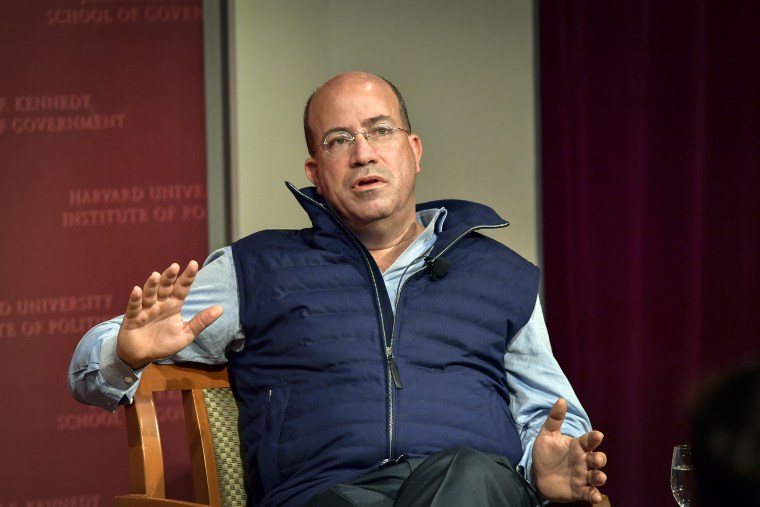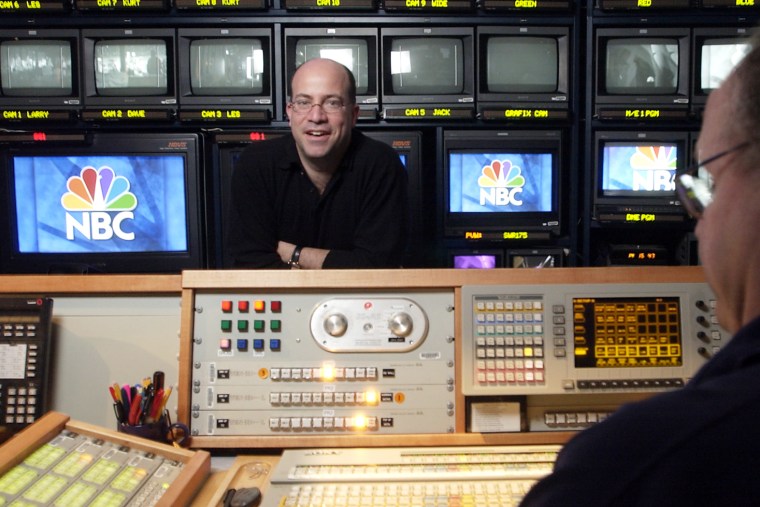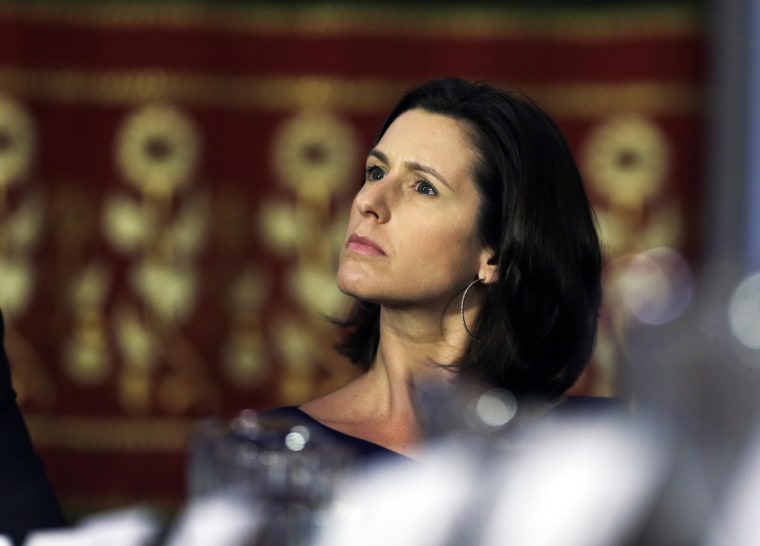The seemingly abrupt resignation of former CNN President Jeff Zucker on Wednesday for what he described as a failure to disclose a relationship with a colleague drew cries of confusion and skepticism from loyal employees. Employment experts, however, said that in general, a lack of disclosure is more than enough to prompt an exit at many big companies.
Zucker announced the decision to employees in a companywide email, citing questioning about a “consensual relationship” with his colleague as part of an investigation into former CNN anchor Chris Cuomo. CNN media correspondent Brian Stelter tweeted the statement, saying it “stunned” company employees.
“I acknowledged the relationship evolved in recent years,” Zucker said. “I was required to disclose it when it began but I didn’t. I was wrong. As a result, I am resigning today.”
Shortly afterward, Executive Vice President Allison Gollust, CNN’s chief marketing officer, sent a separate memo to employees acknowledging that her relationship to Zucker “changed during COVID.”
"I regret that we didn’t disclose it at the right time," she said. "I’m incredibly proud of my time at CNN and look forward to continuing the great work we do every day.”
But questions remain as to how the issue was raised and why it was connected to an investigation into Cuomo, who was terminated in December after he aided his brother, former New York Gov. Andrew Cuomo, in his defense against sexual misconduct allegations.
It is also unclear whether Zucker’s relationship with Gollust was the only factor that contributed to his resignation.

An attorney for Cuomo declined to comment on Zucker’s resignation.
Domenique Camacho Moran, a partner at the New York-based law firm Farrell Fritz, said the timing of Zucker’s resignation wouldn’t be unusual if Chris Cuomo is pursuing litigation against CNN. It also wouldn’t be unusual if internal investigations related to Cuomo's role might uncover other possible issues, especially with potential litigation at stake, she said.
“The disclosure and the timing of the disclosure is certainly intertwined with [Cuomo’s] claim that he should get severance,” Moran said Thursday. Zucker told CNN staffers last year that Cuomo wouldn’t get severance from the company.
Regardless of the questions of litigation, which the company isn’t required to answer, Zucker’s failure to disclose his relationship was a violation of company policy, Moran noted — a policy that exists to give the company a chance to assess potential conflicts of interest and other possible concerns about power dynamics.
“It’s the law surrounding sexual harassment and how to create a workplace free from sexual harassment that drives employers to adopt rules regarding relationships ... and when you have someone at the very top of an organization, there’s no question that is a powerful position,” Moran said.
Gollust and Zucker reportedly knew each other for years before their time at CNN, having worked together previously at NBCUniversal. Former talk show host Katie Couric described them as “joined at the hip” in her memoir, which was released last year, recalling a time when Zucker, then a producer, was alleged to have pushed her to hire Gollust as a publicist and describing her as his “first” hire at CNN.

“I’ve wondered about the nature of their relationship, but I do know, as I wrote in my memoir Going There, that it made me uncomfortable,” Couric said in her newsletter Thursday. “It seems their colleagues and the media at large turned a blind eye to inappropriate behavior.”
Prominent media personalities questioned the resignation on social media Wednesday, alleging that Zucker and Gollust’s relationship was an “open secret” for years.
“I encourage you to google the two parties and read the details about their relationship that dates back years,” Soledad O’Brien, who left the company in 2013, tweeted.
Stelter of CNN wrote in his “Reliable Sources” newsletter Wednesday evening that network employees felt “the punishment didn’t fit the crime” following a meeting with WarnerMedia CEO Jason Kilar.
“Staffers who were initially shocked by WarnerMedia’s action turned disappointed and angry later in the day, and they felt Kilar’s answers were far from sufficient,” Stelter wrote.
Anchor Alisyn Camerota told Stelter on the air that Zucker’s resignation was an “incredible loss” to the network, saying she felt it “deeply personally.”
“If what you’re reporting is true, these are two consenting adults who are both executives,” Camerota said. “That they can’t have a private relationship, this feels wrong on some level.”
CNN declined to comment Thursday, but it did provide a copy of its policy regarding personal relationships in the workplace. The policy says employees must not hire or supervise people they have relationships with and that an employee in a “position of influence” must inform human resources.
Zucker acknowledged in his statement that he failed to disclose the relationship with Gollust.

Executive leaders in particular are expected to be examples at companies and “wear the white hat” when it comes to conduct, said Chantal Mariotti, the founder and owner of Executive HR Consulting Group.
Policies about workplace relationships were created not only to avoid sexual harassment and coercion, but also to protect the workplace culture from favoritism or discrimination. Mariotti said that generally, it’s unlikely that someone would “blow the whistle” on a consensual relationship if there wasn’t some perceived slight or concern about the overall situation.
“Maybe somebody else who was terminated for the same reason and now this guy gets away with it. That’s not fair,” Mariotti said. “That’s discrimination and double standards, policywise.”
Even if Zucker is beloved by his staff and the relationship was consensual, undisclosed relationships can breed a host of other cultural workplace problems, Mariotti said.
“I mean, especially an executive has to have a halo over his head and has to abide by all the policies that are written in the employee handbook,” Mariotti said. “So now he’s the one who resigned. Why? Probably because he knew he messed up and he failed to abide by that policy.”